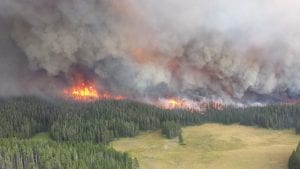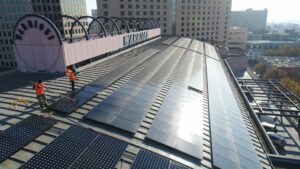California burned badly this year. An estimated 6700 fires scorched more than 1.5 million acres during 2018. That’s the size of Delaware! The homes, health, and welfare of hundreds of thousands of people were, and are, adversely affected. Somewhere down the list of priorities emerging from these disasters is the question: Does the gunk in the air impair solar production? The answer is: Somewhat.
Solar thrives in bright sunshine…like Californians. Then again, solar systems, like residents of Half Moon Bay & Pebble Beach, also get along great with fog and clouds. While it’s true solar energy peaks on a clear day, sunlight is still abundant among clouds, whether natural or spewing from natural disasters. With a bit more exertion, solar systems (like cardiovascular systems) can maintain high energy in the midst of the mist.
The difference with these fires is the abnormal volume and makeup of the gases & particulates filling the air and falling back down. The excess carbon cloud cover reduces sunlight we’d normally receive, and ash accumulation on a solar array can impede absorption, thus hindering production.  While this interference is usually minimal, it raises the other question:
While this interference is usually minimal, it raises the other question:
What to Do?
Clean your panels if they look dirty. Before you say, “Duh!”, we mention it only because not everyone is able or keen to climb up a ladder with apparatus that makes the roof slippery and slanted. Deionized water with non-abrasive cleaning tools & detergent works best if you’re up to the task. If you prefer to have someone else do it, we’re a good someone else.* To schedule a free inspection/estimate at your convenience: Call 866.447.9637 or email Hello@test-seapointdig.com.

You won’t get smoke & mirrors from our Customer Service experts. Let’s hope we’re all breathing easier this autumn.
-by Janiece Ruiz
*There’s great basketball, and there’s Golden State basketball. There’s clean energy, and there’s squeaky clean energy. Here’s a snap of Synergy Power’s team powerwashing the practice facility of a local NBA powerhouse. We help them keep the lights on, so they can keep shooting the lights out.

